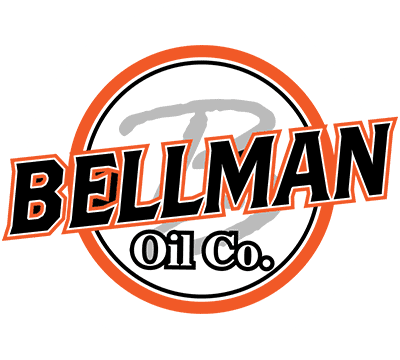In Northern Indiana and Southwest Michigan, we’re no strangers to dramatic seasonal swings. From bitter snowy winters to sweltering summer heat, these shifts affect everything from what we wear to how our fuel runs. These temperature shifts can also impact the performance and reliability of your lubricants. Understanding how temperature affects oil and grease is essential to protecting your investment and avoiding costly downtime.
Why Temperature Matters for Lubricants
Lubricants are engineered to reduce friction, carry away heat, and protect moving parts, but their ability to do that depends heavily on temperature.
- In cold weather, lubricants thicken, reducing flow and circulation.
- In hot weather, they can thin out or oxidize, offering less protection.
- These viscosity shifts affect startup wear, sealing, pressure stability, and even fuel efficiency.
Inconsistent lubrication can cause wear, increased energy consumption, premature failure, and higher maintenance costs.
Cold Weather Challenges for Lubricants
When winter rolls in, you’ll notice changes in how your equipment behaves, and your lubricants are often the root cause.
Common Cold Weather Issues
- Grease hardening: Makes bearings and joints sluggish
- Oil thickening: Delays hydraulic pressure buildup
- Startup wear: Cold, thick oil doesn’t circulate quickly enough to protect engine components
- Gelling: Particularly in diesel systems or with the wrong oil grade
To counteract these effects, cold-weather lubricants are formulated with lower pour points and additives that maintain flow at low temperatures.
Heat and High-Load Operating Conditions
On the opposite end of the spectrum, high summer temps bring a different set of risks.
High-Temperature Lubricant Challenges
- Oil shearing: High-speed components can thin oil beyond safe limits
- Volatility: Increased risk of evaporation and burn-off
- Oxidation: Leads to sludge, varnish, and acid formation
- Thermal breakdown: Causes loss of film strength and increased wear
Beyond summer heat, equipment and machines can generate high heat as they run, potentially impacting the lifespan of certain lubricants. Equipment like tractors, construction vehicles, long-haul trucks, and industrial presses requires lubricants that can withstand sustained loads and heat.
Choosing the Right Lubricant by Season
Just like you winterize your fuel, your lubricants should shift with the seasons or be formulated to perform year-round. Here are some things to keep in mind when picking a lubricant:
- Oil Grade: In cold climates, switching from a 15W-40 to a 5W-30 can improve winter starts without sacrificing summer protection.
- Multi-Grade Oils: Provide a broader operating range.
- Grease Compatibility: Use lithium or synthetic greases rated for sub-zero or high-heat environments.
- OEM Specs: Always consider your equipment manufacturer’s viscosity recommendations.
If your machinery operates for extended periods or generates excessive heat on its own, select a lubricant specifically designed for high-temperature applications.
Storage Tips for Lubricants Year-Round
Even the best lubricants and oils can break down if they are stored incorrectly. Temperature fluctuations affect not just performance, but also shelf life and product integrity. Here are some ways to prevent spoilage during storage:
- Store in temperature-controlled areas whenever possible
- Avoid direct sunlight and exposure to moisture or dust
- Use sealed, clean containers to prevent contamination
- Rotate stock and label by date of receipt for inventory control
Cold temperatures can cause phase separation, while heat speeds up oxidation. For farmers and fleet managers who keep drums on site, a small change in storage practices can prevent large equipment issues down the line.
Your lubricants should be selected, stored, and monitored with seasonal temperature shifts in mind. Failure to adapt can mean sluggish performance in the winter, overheating in the summer, and costly repairs anytime in between.
Get Ready for the Season Ahead
Need help reviewing your lubricant inventory or selecting the right products for the upcoming season? At Bellman Oil, we help you make smart lubrication choices that extend equipment life, improve reliability, and cut downtime. Contact us for personalized support, product recommendations, and local delivery throughout Northern Indiana and Southwest Michigan.




